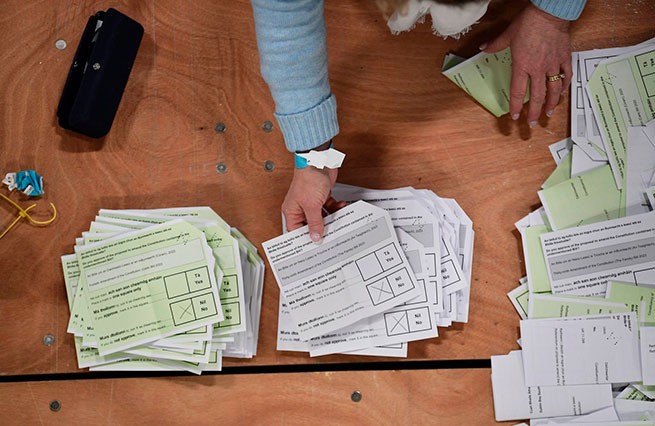Participants in the referendum held in Ireland on March 8 overwhelmingly voted against changes to the country’s constitution that would change ideas about the family and the role of women.
The Irish government has said it will adhere to the referendum result.
In particular, in response to the first Irish question about expanding the definition of family to include “long-term relationships”, such as couples living together outside of marriage and their children, 67.7 respondents voted “no”.
But an even higher percentage respondents rejected the second proposal of the referendum – to remove the “outdated” reference to the role of a woman in the home, which states that a woman is obliged to care for other people living with her under the same roof.
73.9% of respondents answered “no” to this change, breaking the record for the number of negative responses to a national referendum.
Both proposed amendments relate to section 41 of the Irish Constitution, which was adopted in 1937, when the Catholic Church dominated public and private life in the country.
Last time all the major political parties were in favor of yes, and until recently opinion polls predicted a fairly easy vote in the referendum, which was symbolically scheduled for March 8, International Women’s Day.
This ambiguity appears to have discouraged many voters from voting yes.
“Nobody knows exactly what it is “long-term relationship” while everyone knows exactly what marriage is”“David Quinn, founder of the Jonah Institute, which advocates for the Catholic community, said before the referendum, adding: “Many will vote “No” due to the confusion and abolition of such words (and concepts) as “woman” and “mother”, – he suggested (apparently mistaking all citizens for illiterate).”
After the results were announced on Saturday evening, Irish Prime Minister Leo Varadkar, who heads the center-right coalition government that proposed the referendum, said both amendments were clearly rejected with sufficient turnout.
He added that the Irish government recognizes the result and will fully respect it. “We had the responsibility to persuade the majority to vote yes, and it is clear that we failed. We accept responsibility for the final result.” – said the Prime Minister.
It is worth noting that Leo Eric Varadkar did not even think of making a statement similar to that expressed government press secretary Pavlos Marinakis, “In our country, issues of rights are not decided in referendums”he said, disagreeing with proposal of Archbishop Jerome “ask the people’s opinion.”
It is noteworthy that in relation to Ireland there were not even hints of sanctions or condemnation from Brusselswith which the Mitsotakis government frightened the population…
Greek journalists who discuss information from Ireland only sigh sadly, remembering the former Archbishop Christodoulos, saying that with him, this would not have happened…
However, the residents of Greece should ask themselves a counter question – if the poll data indicating that more than 60% of the population were against this law is correct, why did only a couple of thousand people come out to protest?







More Stories
Paris: wild clashes between police and "black" block
Modern Germans are far from the most hardworking in Europe
Georgia: Opposition leaders were brutally beaten by security forces (video)